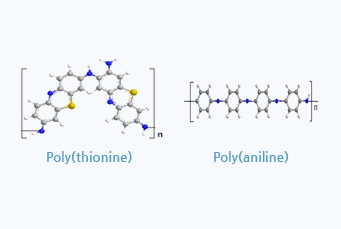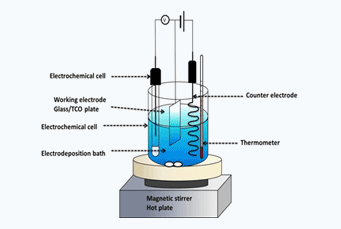Electrochemistry

Electrochemical Energy Conversion
Electrochemical energy conversion is a field of energy technology concerned with Electrochemical methods of energy conversion including fuel cells and photoelectrochemical. Our aim is to develop high efficient solar cells to generate electricity, followed by the development of energy conversion fuel cells, and energy storage devices such as supercapacitors and batteries
-
Electrochemical characterization and application of novel nanomaterials for the development of high-efficiency solar cells
-
Development of novel electrode materials for the application in fuel cells. Lithium-ion batteries etc.

Supercapacitors
Supercapacitor (SC), formerly electric double-layer capacitor (EDLC) or ultracapacitor, is the generic term for a family of electrochemical capacitors. The capacitance value of an electrochemical capacitor is determined by two storage principles, which both contribute indivisibly to the total capacitance
-
Conductiong polymers based pseudo-capacitive materails
-
Graphene/Doped graphene based double layer capacitor materials


Novel Electrode Materials
Important properties of electrode materials are conductivity, corrosion resistance, hardness, current load, shape, and size. Many of these are determined by inherent characteristics of the material.
-
Preparation of various nanoscale electrode materials by electrochemical methods


Conducting Polymers
Conductive polymers are organic polymers that conduct electricity. Such compounds may have metallic conductivity or can be semiconductors. Conductive polymers can offer high electrical conductivity but do not show similar mechanical properties to other commercially available polymers. They can be electrochemically Synthesized on different substrates by varying the experimental conditions.
-
Electrochemical methods for the modification of different substrates by various conducting polymers.
-
Utilization of condcting polymers modified electrode for sensor and solar cells development


Electrodeposition
Electrodeposition is a powerful technique for the modification of electrode surfaces with different electrode modifiers. This method allows controlling the size of modifiers from nanoscale to microscale.
-
Novel electrodeposition for the modification of electrodes for sensor and solar cell application

